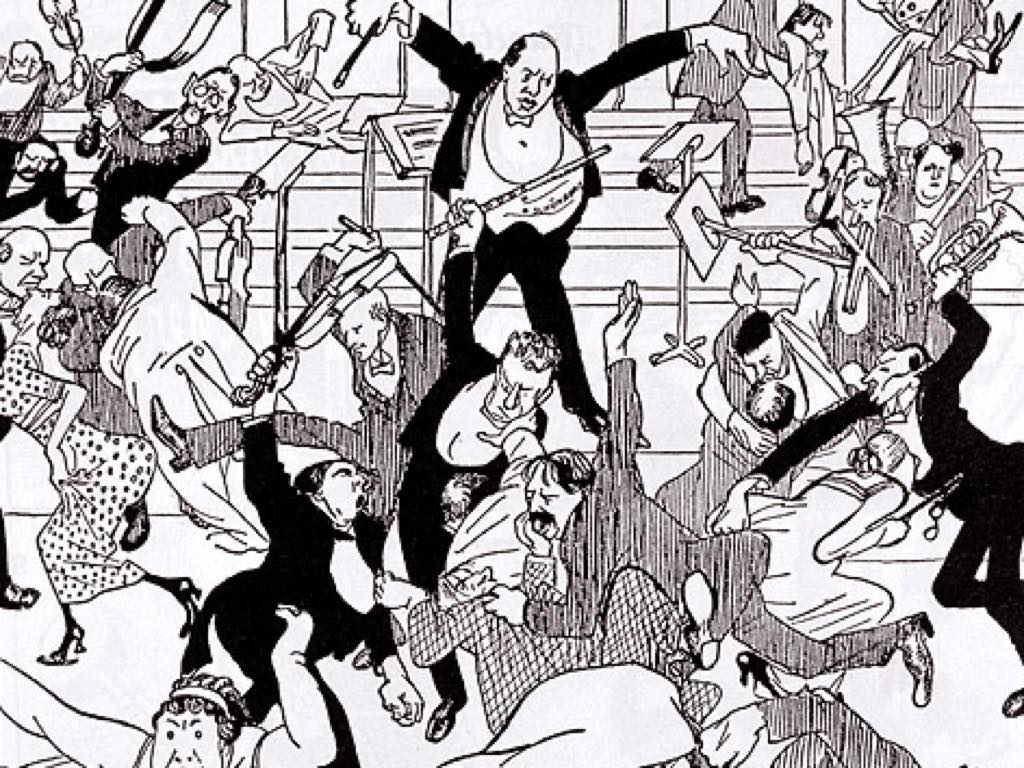
Many regular concert-goers will have been suffering from the lack of live music-making in Paris and throughout the world during the pandemic. On the classical music scene, while opera lovers have been able to enjoy various streamed events, new orchestral concerts have been less easy to find. It has therefore come as a real fillip to be able to listen to concerts performed in Paris by the Orchestre National de France under the baton of Daniele Gatti both live and on catch-up via the radio station France Musique. The concerts are all played without an audience in the concert hall at the Maison de la Radio.
The one that took my fancy was a program of music by two composers who formed part of what is known as the Second Viennese School: Anton Webern and Alban Berg. Before any more traditionally minded music-lovers reach for the equivalent of the off-switch, I should add that most of the music in this concert comes from periods in the composers’ careers when their writing embraced the chromaticism and expanded tonality of late Romanticism before they moved toward atonality.
Opening the evening was Webern’s “Langsamer Satz” (literally meaning Slow Movement), originally written in 1905 for string quartet but arranged for full orchestra here. It was apparently inspired by a hiking holiday that Webern took with his then-fiancée and soon-to-be wife Wilhelmine Mörtl. The highly charged emotions of the piece certainly suggest the joy and pain of young love. It reminded me of another musical love letter from a composer to his wife: Wagner’s “Siegfried Idyll.”
The centerpiece of the program was Berg’s sumptuous “Seven Early Songs.” The Israeli soprano Chen Reiss gave a wholehearted, tonally gorgeous rendition of the songs. The touchstone for me of a good singer is how she negotiates the beauty and yet fiendishly high notes of the second song, “Die Nachtigall” (The Nightingale); Reiss passed the test triumphantly.
The orchestral suite that Berg made out of his second and final opera, “Lulu,” based on two plays by Frank Wedekind, ended the evening. Berg never finished or heard the opera, but he did attend a performance of the “Lulu Suite” just a few days before his death from blood poisoning at the age of 50.
For me, “Lulu” contains the most extraordinary writing, thrillingly veering between atonality and late Romanticism, and the Orchestre National de France and Daniele Gatti were on visceral form here, making me wish all the more that I could have been sitting in the hall to hear them live.
Reiss, who returned to the stage to perform the two sung sections of the Suite, seemed less at ease with the high range of the vocal writing here and did not convey a strong sense of the mystery and appeal of the central heroine. As far as I can see, Reiss has not played the role of Lulu in the full opera before, so perhaps this experience will sharpen her interpretation of the role in the Suite in a future production.
Until we can all enjoy attending concerts in person, I, for one, will be returning to listen to the live broadcasts by the Orchestre National de France, and I urge you to do so, too.
Nick Hammond’s latest book, The Powers of Sound and Song in Early Modern Paris, is now available in paperback and as an e-book here and from online vendors.
Favorite